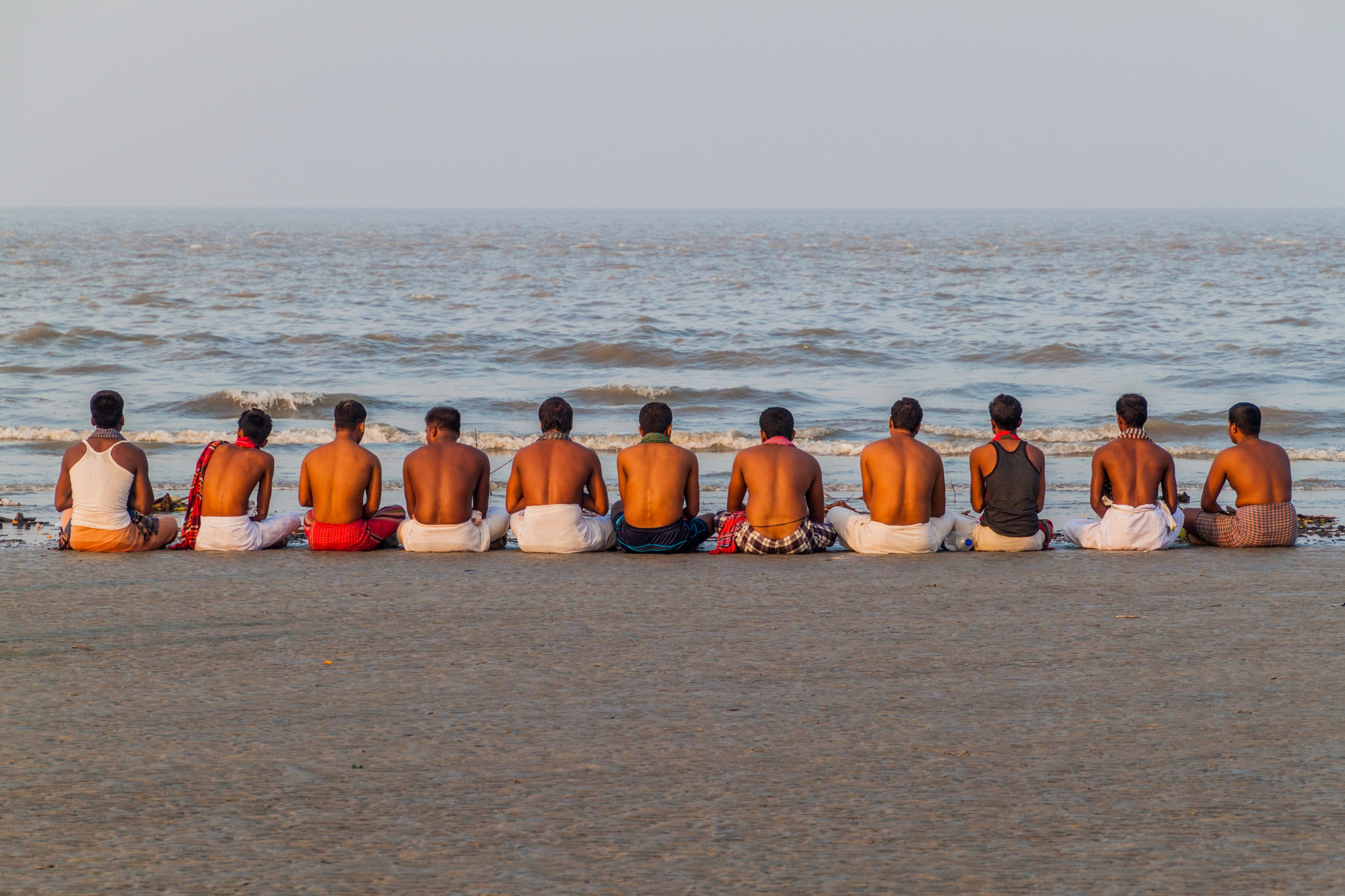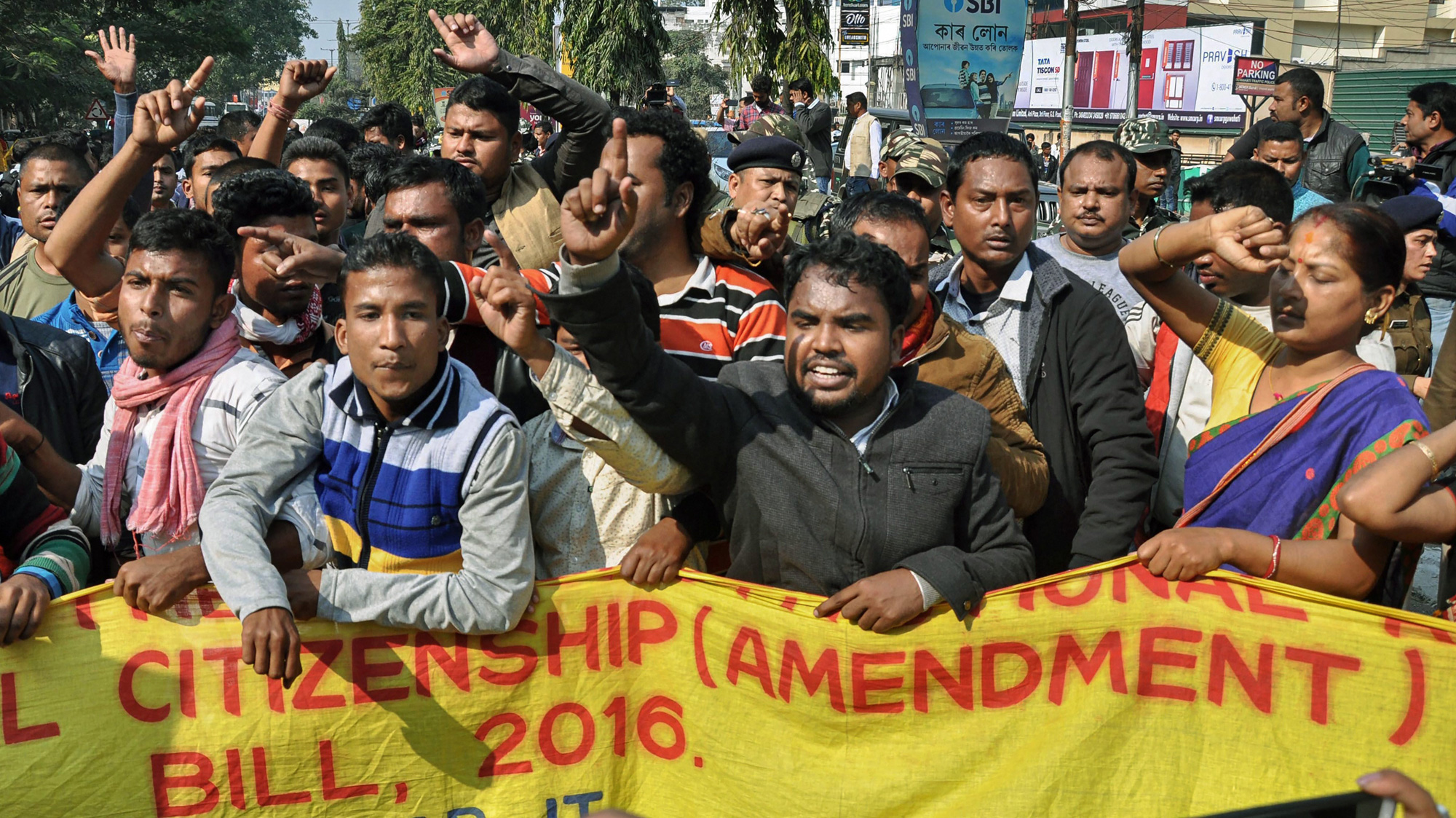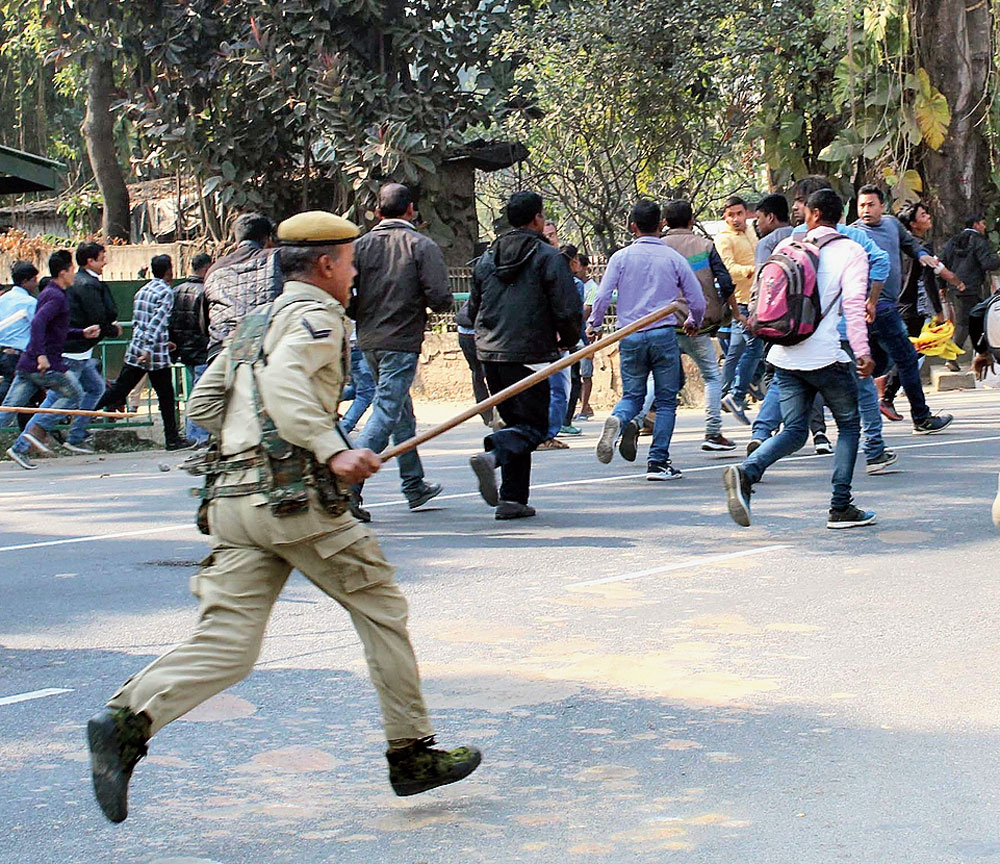The citizenship amendment bill controversy reminds me of the grizzled Hindu peasant from Khulna in a refugee camp near Kalyani whom I asked after the 1971 India-Pakistan war if he regarded himself as a Bangladeshi. “No,” he replied, adding after a moment’s thought, “You can call me an Indian resident in Bangladesh!”
His claim had no legal basis. India is not officially a Hindu country, as the Meghalaya High Court’s Sudip Ranjan Sen lamented recently. But Syed Shahabuddin often harped on the significance of rituals like lighting lamps or cracking coconuts being taken for granted. Speaking louder than formal labels, it confirmed what K.M. Munshi called India’s “collective consciousness”. Even the agnostic Jawaharlal Nehru implicitly recognized that the demographic reality such rites reflect carry an obligation that transcends politics. East Bengal’s Hindu population would not have dwindled from 22 per cent to 9 per cent between 1951 and 2011 without illegal escape hatches to mete out natural justice. The ‘jungle passport’ (as it was called) operated on much the same principle as Narendra Modi’s proposed dispensation: Hindus paid more to the East Pakistan/Bangladesh border guards and less to India’s. The opposite applied to Muslim migrants. Indian officials saw them as economic refugees as opposed to Hindu evacuees.
The bill’s joint parliamentary committee members like Mohammed Salim of the Communist Party of India (Marxist) and Javed Ali Khan of the Samajwadi Party might accuse Modi of exploiting this historic humanitarian commitment for electoral purposes or to further his sectarian agenda, but there wouldn’t ever have been a Hindu refugee from Khulna if the universalist vision of our founding fathers had been paramount. Even if god “gave all men all earth to love”, as Kipling wrote, the Sentinel newspaper’s tirade against “a diabolical determination of the Centre” to erode Assamese identity and culture with a flood of Bengalis warns that other considerations confine humanity within community borders. It’s also a reminder of Assam’s notorious “Bongal Kheda” movement.
It’s the same everywhere. Britain is floundering in an exit process that proclaims the triumph of the ghetto over infinity. Greece and Turkey probably didn’t realize they were setting a precedent for future generations worldwide in signing the Convention Concerning the Exchange of Greek and Turkish Populations at Lausanne on January 30, 1923. That’s when ethnic cleansing is thought to have begun. Seventy years were to pass before survivors of the two million uprooted people could visit lost villages in the other country. One is told that Nehru and Liaquat Ali Khan finalized their famous pact on April 8, 1950 only to prevent another such disaster. But the famous soon became infamous. An agreement that was supposed to prevent the stampede of an exodus by guaranteeing minority rights turned into the cruel farce of a fig leaf that barely covered wholesale loot, dispossession, rape, murder and eviction. Bengalis saw the pact as a device for despoliation under the pretext of protection, and Shyama Prasad Mookerjee and K.C. Neogy quit Nehru’s cabinet in protest.
The citizenship bill will not right the wrongs of the past. Surveying history’s continuum, the novelist, Pankaj Mishra, went to the extent of interpreting Modi’s rise as a token of “the unfinished business of partition — its crude logic, which was disguised by the rhetoric of secularism for a long time”. Nothing that has happened can be erased or rewritten. But the bill might help to ensure that the long shadow of the past does not forever darken the future of Hindus abroad. As Pranab Mukherjee researched and wrote long before scaling presidential heights, the East Bengal Hindu is the victim not just of cruel dispossession in his original homeland but of even crueller discrimination in the land where he sought refuge. Perhaps India did not expect the Partition of Bengal to last. Whatever the reason, the Centre denied East Bengalis the funds and facilities that enabled West Pakistan refugees to start life anew.
I had a small taste of East Pakistani harassment during several visits to the country in the late 1960s. Making my way from Dhaka airport to the railway station to catch the Green Arrow express, I had, first, to register as a visiting foreigner at (I think) the Lalbagh thana. It was a horrendous experience. Every time my blue passport reached the top of the pile of red India-Pakistan passports waiting to be stamped, the official would push it down to the bottom. Once I tried to explain I was getting late for my train but was yelled at so rudely that I retreated to my corner. Perhaps those pinpricks could be explained by the social, economic and political facts of life in undivided Bengal. Perhaps they were influenced by (West) Pakistani conditioning. But those East Pakistanis became Bangladeshis a few years later. Many myths ruled us in those hectic years. Once the wartime euphoria was over there was scant recognition of the anonymous “mitra bahini” who ‘helped’ the Mukti Bahini. It may not have been only a joke that the Mukti Bahini’s war cry was “Sat Sri Akal!” Mujibnagar was a state of mind. Eastern Command’s chief public relations officer always asked whether the information I sought during the war was for my Indian newspaper or some publication abroad, and tailored his briefing accordingly.
It suited India to believe that the distinction between Hindu and Muslim had vanished, and that all East Pakistanis — 91 per cent Muslim — were united in a common cause. My first tour of refugee camps therefore came as a shock. “First, they (local Muslims) killed the Biharis,” recounted another Hindu refugee. “Then, when the (Pakistani) soldiers came, all three turned on us!”As mentioned before, my report under an eight-column headline in bold capitals, “FLIGHT OF THE HINDU MILLIONS”, in London’s Observer of June 13, 1971 contradicted the popular narrative of a secular Elysium in the making
Grandees like Fazlul Quader Chowdhury, a former acting president of Pakistan, Abdul Motaleb Malik, East Pakistan’s last civilian governor, or Shah Azizur Rahman, a future prime minister, were not alone in opposing liberation. Khondakar Mustaque Ahmed, a future president, may have played ball with any winning side but he can’t have revoked Sheikh Mujibur Rahman’s Collaborators (Special Tribunals) Order, passed an Indemnity Act, and bestowed high military rank and diplomatic appointments on Mujib’s killers without wider endorsement. If it was revealing that more than 37,000 war crimes suspects were rounded up under the Collaborators Order, it was even more revealing that they were all freed when a general amnesty was declared in November 1973. Mujib himself revived the Islamic Academy, mended fences with Pakistan, and joined the Organization of the Islamic Conference and Islamic Development Bank. Those who knew him say “Khuda Hafiz” replaced “Joy Bangla” as his preferred greeting towards the end. Even Sheikh Hasina baulks at repealing the constitutional amendment making Islam the State religion. Obviously, many diplomats took grave risks in 1971 but one also heard of the ambassador who was returning to Dhaka when, learning of the war’s outcome, he promptly changed course for a Western destination, ordering the boat carrying his furniture to do the same. Many ordinary people must have been with them for the Bangladesh Nationalist Party-led alliance to capture 193 parliamentary seats in 2001 or the Jamaat-e-Islami to set up 65,000 madrasas.
The bill may have many procedural flaws. It excludes Myanmar. The residence qualification it stipulates has been arbitrarily set. The two guarantors can be bought. Assam again fears a flood of Bengalis. The Assam Accord may have to be revisited. But the measure does at least promise a permanent home to a beleaguered community that India had all but abandoned these 71 years. Whatever the cost, where else would a persecuted Hindu from Bangladesh, Pakistan or Afghanistan seek refuge but in India?













